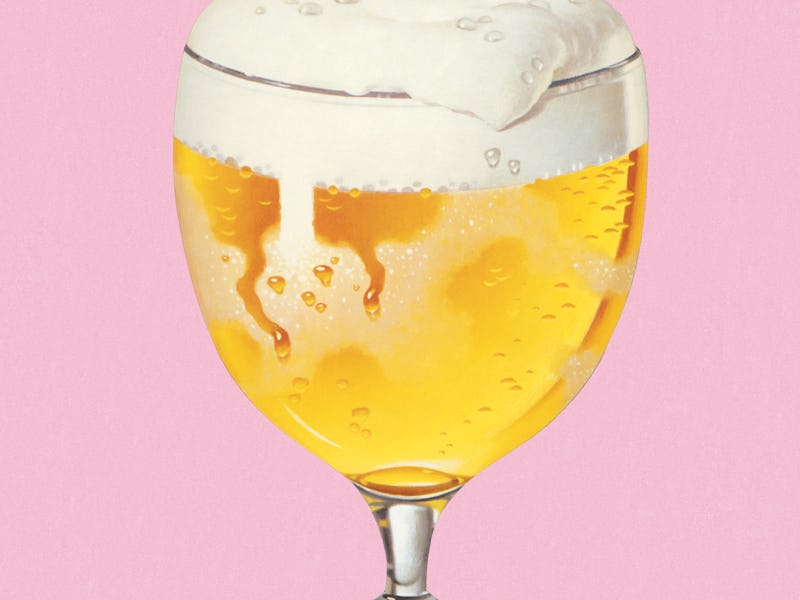The best way to get drunk on a diet, according to science
Drinking doesn't have to sabotage your health goals, if you do it right.

Tossing back a tequila shot or downing a Moscow mule aren’t habits likely to top nutritionists’ tricks to lose weight or get fit. Some research says no amount of alcohol, even in moderation, is healthy for the mind or body. But a drink or two every few days doesn’t have to sabotage your health goals, whether they are to lighten up or protect your heart.
Inverse put different types of booze head-to-head to see which drinks get a (relative) green light and which to avoid. Cheers!
Go for spirits to shed pounds
One strategy to cut excess calories from your drinking habits? Choose spirits, but leave out sugary mixers like soda, tonic water, or syrups.
Spirits often have the biggest bang for your buck: Just a shot of whiskey, gin or rum is likely to give you a buzz faster than downing beer or wine. They also are the lightest and lowest carbohydrate drinks of the group: A standard shot of whiskey, tequila, vodka, gin, or rum has about 97 calories.
But cocktails are often sneaky vehicles for huge amounts of added sugar. A vodka cranberry and Jack and Coke, two popular cocktails, can contain over 30 grams of sugar, a number close to your daily recommendation. Cider is also a notoriously sweet option at about 20 grams of sugar per serving. Swap these orders for a vodka soda with lime or traditional martini, choices less likely to throw your liver into overdrive than a Long Island iced tea.
A cocktail could look healthy — but watch out for sugary mixers.
Steer clear of anything blue, cloudy, or with a tiny umbrella sticking out — red flags that a drink might be sugar-laden and unlikely to help you achieve to your health goals.
Wine: A (debatably) healthy option
Wine isn’t the lowest calorie winner but does have some science-backed benefits when consumed moderately. Drinking a glass or two of red wine boosts healthy gut bacteria, which may help reduce cholesterol levels and even, obesity, research shows. Along with your Malbec, you can also benefit from a flood of antioxidants or polyphenols derived from grape skins. Polyphenols can help protect the lining of the heart, the Mayo Clinic says. White wine isn't as helpful health-wise as red wine, but it still has some cardio-protective benefits, research shows.
But wine isn’t a low-calorie beverage so if weight loss is your game, vino probably won’t help you win. One glass of wine has about 121 to 125 calories. Champagne and prosecco are slightly lighter calorie-wise and contain some polyphenols, so drinking the bubbly could be a solid option.
Still, it's important to note that while some scientists say these drinks are linked to health benefits, other scientists say it's not really fair to use the word "benefits" at all. According to a much-discussed 2018 study published in Lancet, any alcohol consumed worsens health — and that effect, its argued, outweighs the other study-backed benefits.
Pass on the beer
A bottle of beer isn’t the most diet-friendly option, but light beers offer a swap that can still pack a flavor punch. Light beer, compared to its hefty regular counterpart, has about 103 calories per can, saving about 50 calories. Some beers, especially dark lagers like Guinness, contain a type of polyphenol called flavonoids, which fight inflammation in the body. But producing the bright, clear color of most beers requires removing these healthy antioxidants, according to a 2011 study.
If you seek something refreshing, spiked seltzer can quench that craving, without some of the guilt. Spiked seltzer typically has between 90 to 120 calories and only 1 to 2 grams of sugar.
These drinks might help you avoid overloading during happy hour, but they won’t prevent you from scarfing down a breakfast sandwich or stack of pancakes to soothe your hangover the next day. It's crucial to combine healthy drinking with a nutrient-dense diet (like eating plant-based or going on the Mediterranean diet) and lots of physical activity.
Calculate the calorie count of a variety of beverages here.
Going dry
Ultimately, overwhelming research suggests alcohol may do more harm than good. If we're being real with ourselves, the best way to get fit or maintain a healthy lifestyle is by drinking water or sparkling seltzer, especially if you or your family have a history of substance abuse.
“Each individual can decide what they think that acceptable risk is, but there’s no free lunch or free drink, so to speak,” lead author and University of Washington Institute for Health Metrics senior researcher Max Griswold, Ph.D., told Inverse in 2018.
Still, if you want to drink on a diet, some drinks are definitely healthier than others. Having a drink is like having a dessert — if you can safely drink it's a treat, but one that should be enjoyed in moderation.